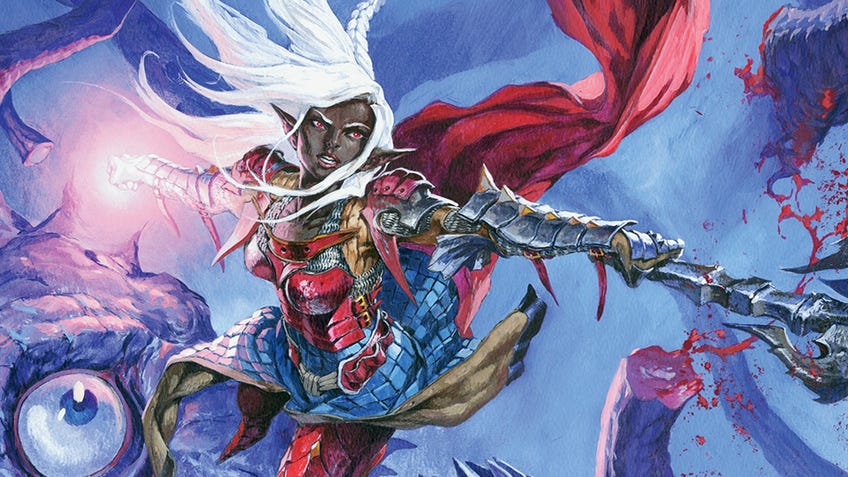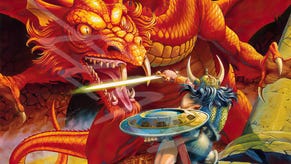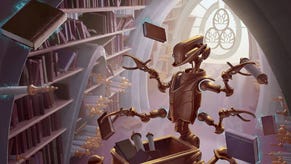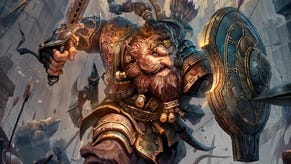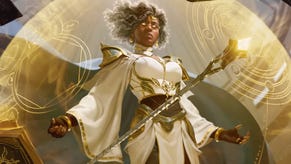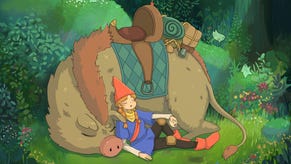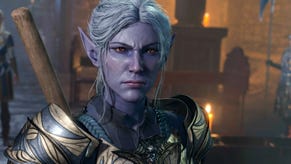Dungeons & Dragons is addressing problematic elements of the RPG’s races
Promises to tackle “legacy D&D content that does not reflect who we are today”.
Dungeons & Dragons maker Wizards of the Coast has announced that it will address and remove problematic aspects of the tabletop RPG in future releases, including “racially insensitive” depictions and stereotypes present in the game’s character races.
In a blog post, Wizards of the Coast acknowledged that some elements of the roleplaying game’s fantasy races have drawn from the treatment of “real-world ethnic groups [that] have been and continue to be denigrated”. The publisher called out the oft-criticised depictions of orcs and drow as “prime examples” of D&D races that “have been characterized as monstrous and evil” using descriptions “painfully reminiscent” of real-world discrimination.
Highlighting last year’s Eberron: Rising from the Last War and Explorer's Guide to Wildemount, this year’s D&D 5E sourcebook based on popular web series Critical Role, as examples of its efforts to “present orcs and drow in a new light [and] just as morally and culturally complex as other peoples”, Wizards of the Coast said that future books would portray all of D&D’s races in similarly “relatable ways” to eliminate problematic aspects.
In addition, the publisher announced it would release a way for players to customise their character’s ability scores independently of their character’s race later this year, addressing problematic aspects of D&D 5E races tied to gameplay. The unannounced product will seemingly address the criticism of racial discrimination levelled at racial traits - for instance, the negative modifier to intelligence, wisdom and charisma when creating an orc character. “This option emphasizes that each person in the game is an individual with capabilities all their own,” Wizards said.
Alongside changes to problematic racial depictions in upcoming releases, Wizards added that it would be taking similar action “to address legacy D&D content that does not reflect who we are today”, saying that “despite our conscious efforts to the contrary, we have allowed some of those old descriptions to reappear in the game”.
In one such move, the publisher confirmed that it had changed “racially insensitive” text in upcoming reprints of D&D 5E campaigns Tomb of Annihilation and Curse of Strahd. The changes in Curse of Strahd include measures to address the depiction of the Vistani people, which Wizards acknowledged “echoes some stereotypes associated with the Romani people in the real world”. Wizards said it was working with a Romani consultant to portray the Vistani “in a way that doesn’t rely on reductive tropes” in two additional upcoming releases, and reprints of other D&D books would undergo a similar review process to “fix a variety of things, including errors in judgment”.
The company added that it was working to include sensitivity readers in the process of creating a new book and would “reach out to experts in various fields to help us identify our blind spots”. It said that it was “proactively seeking new, diverse talent to join our staff and our pool of freelance writers and artists”, as well as working with diverse contributors on releases for 2021: “We're going to invest even more in this approach and add a broad range of new voices to join the chorus of D&D storytelling.”
The steps to address problematic elements of Dungeons & Dragons follows Wizards of the Coast’s recent announcement that seven cards would be banned from Magic: The Gathering and removed from the trading card game’s database as a result of their racist and “culturally offensive” imagery and text. A review of every card released for the game was promised in an effort to remove further “problematic” content.
“We want everyone to feel at home around the game table and to see positive reflections of themselves within our products,” Wizards of the Coast wrote in the Dungeons & Dragons announcement. ““Human” in D&D means everyone, not just fantasy versions of northern Europeans, and the D&D community is now more diverse than it’s ever been.
“Making D&D as welcoming and inclusive as possible has moved to the forefront of our priorities over the last six years.
“We recognize that doing this isn’t about getting to a place where we can rest on our laurels but continuing to head in the right direction.”
